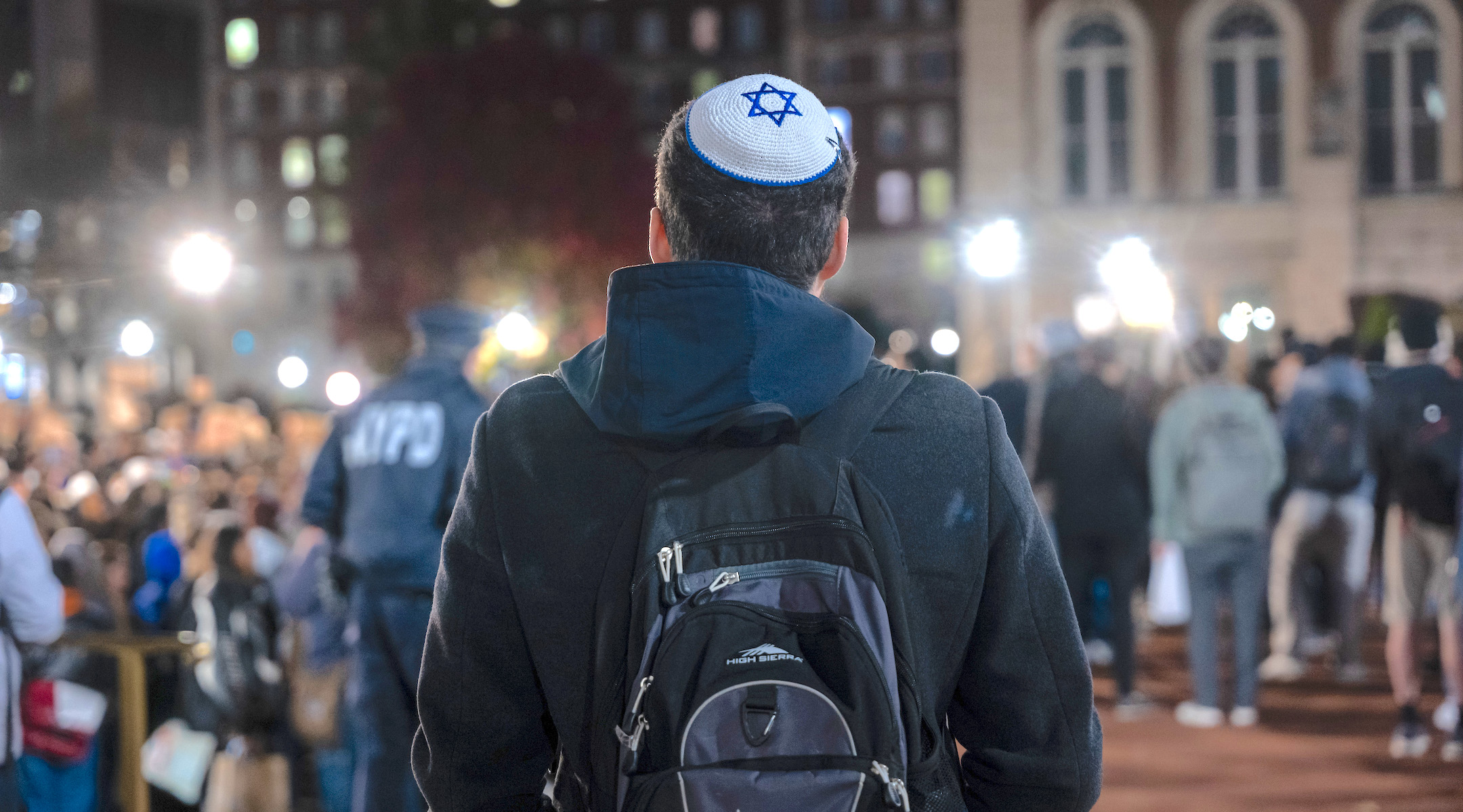Safe schools for Jews? Hillel revamps its college guide in response to campus turmoil
The Jewish campus organization has added new features to its college guide to help students understand ‘how antisemitism manifests on campus’

A Jewish student watches a protest in support of Palestinians and for free speech at New York’s Columbia University campus, Nov. 14, 2023. (Spencer Platt/Getty Images)
Amid what many consider an increasingly hostile climate for Jewish students on campus, Hillel has updated its college guide, including a new feature that indicates whether students at a particular school have held a vote to boycott Israel.
The nonprofit, which calls itself the world’s largest Jewish college organization, describes the changes as a way to help Jewish families understand “how antisemitism manifests on campus.”
“We know that Jewish high school students and their families are seeking more information than ever before to help them navigate the college selection process this year,” said Hillel CEO Adam Lehman. The new guide comes as traffic to the college guide’s website has skyrocketed — more than tripling in the past year, according to a Hillel spokesperson. And the revisions follow a new Hillel survey showing that most Jewish parents of high school juniors and seniors say the Oct. 7 attack on Israel and its aftermath have influenced their plans for college.
Hillel has for more than a decade released profiles of four-year colleges with information about their Jewish enrollment, Jewish course offerings and the availability of kosher food. The new features focus on campus responses to antisemitism and anti-Zionism, such as whether a college participates in Hillel’s antisemitism training program for university administrators, and whether it hosts a Hillel mental health professional to work with Jewish students.
The guide also now includes information about civil rights cases filed against schools through the U.S. Department of Education’s Office of Civil Rights that may involve Jewish students.
Since Oct. 7, when Hamas attacked Israel and prompted it to launch a military campaign in Gaza that is estimated to have killed more than 32,000, anti-war protests have rocked many college campuses. Some Jewish students and groups, including the Anti-Defamation League, consider pro-Palestinian protesters’ anti-Zionism inherently antisemitic. Others who reject that equivalence say protesters’ denunciations of Israel have in many instances crossed a line into antisemitic attacks on Jewish and Israeli students. A smaller group of Jews have joined, or in some cases, led protests.
In response to turmoil on campus, many families are choosing schools where their students are apt to feel more comfortable as Jews, though some say fears of campus antisemitism are overblown.
Hillel’s guide, which is free, profiles about 950 colleges. A print edition is published every fall, usually in October.













